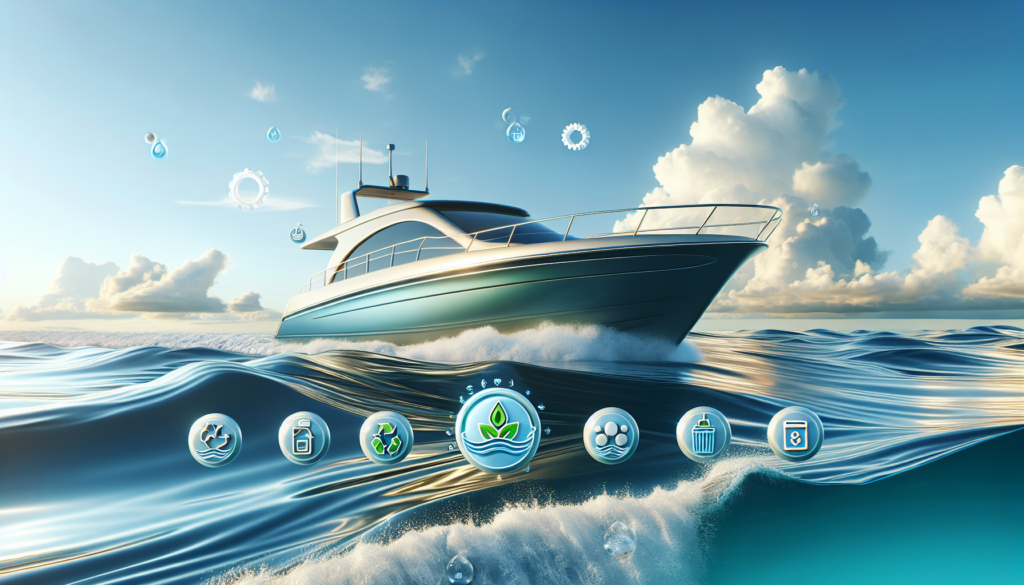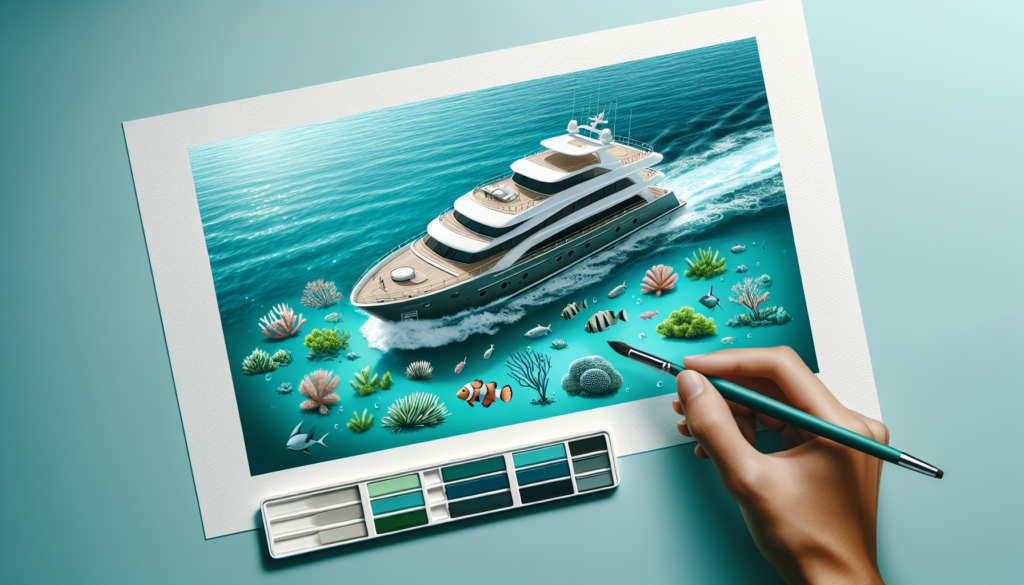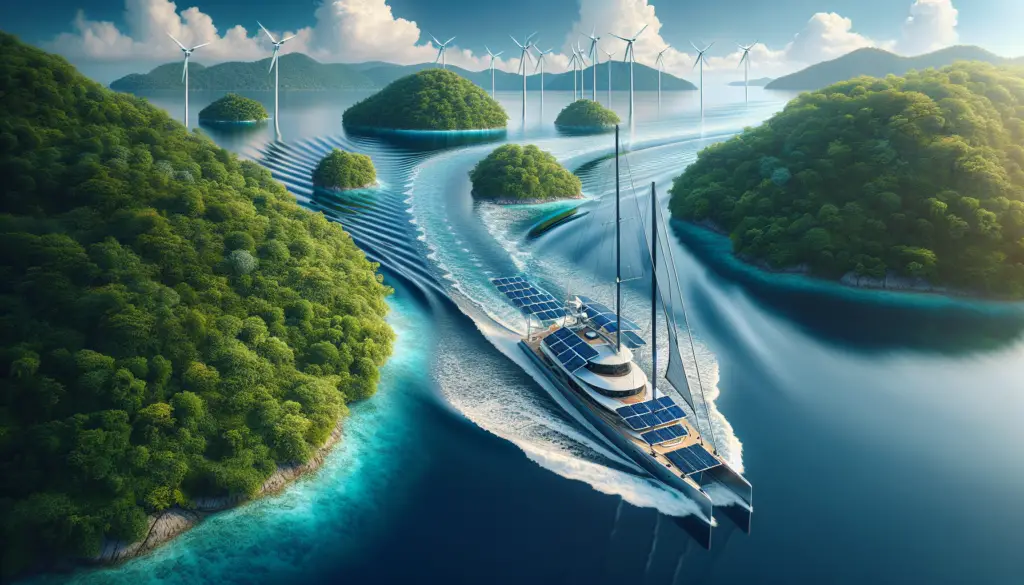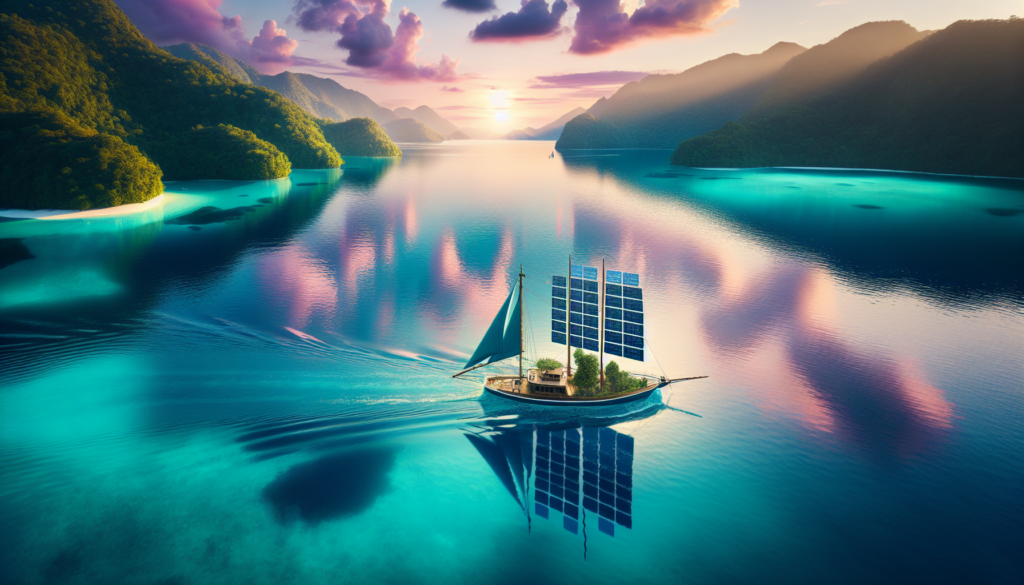Ready to take the helm on your boating adventure? As you set sail, have you ever considered the environmental impact of your maritime activities? Your dream of gliding over the water can still be a reality, but with some added responsibility. The article, “Beginner’s Guide To eco-friendly boating practices“, aims to educate and provide insights on how to minimize environmental damage while maximizing your boating pleasure. So, get ready to embark on a journey that merges the thrill of sailing with the commitment to a cleaner and healthier environment.

Understanding the Importance of Eco-friendly Boating
Boating offers an unparalleled way to connect with nature. Yet, without proper precautions, it can harm the very environments we relish. Understanding the impacts of boating on the environment and promoting sustainable practices are essential to preserving aquatic ecosystems for future generations.
The Impacts of Boating on the Environment
Boating can inadvertently contribute to various environmental issues, from air and noise pollution to habitat degradation. Boat engines can release harmful emissions into the air and can lead to oil and fuel spills that pollute waterways. Excessive noise from boat engines can disturb marine life, impacting their communication, reproduction, and navigation skills. Moreover, anchors, propellers, and hulls can destroy seagrass beds and coral reefs, disrupting marine habitats.
Importance of Promoting Sustainable Boating Practices
Promoting sustainable boating practices is key to mitigating the negative environmental impacts of boating. By adopting eco-friendly practices, you contribute to a healthier and more sustainable environment. Plus, you help preserve the natural beauty of waterways for future generations of boaters to enjoy. Sustainable practices can also lead to lower operating costs through energy conservation, reduced waste, and minimal maintenance requirements.
Eco-friendly Boat Selection and Operation
Choosing and operating a boat responsibly can largely mitigate your environmental impact.
Choosing an Eco-Friendly Boat
When shopping for a new boat, opt for designs that prioritize fuel efficiency and low emissions. Electric or hybrid boats, eliminating gas and oil consumption, are excellent eco-conscious choices. Also, consider the material composition of the boat. Aluminum, for instance, is a more sustainable choice than fiberglass due to its recyclability.
Operating Your Boat in an Environmentally Conscious Manner
Responsible boat operation extends beyond selection. Make sure to maintain your boat regularly as it can significantly increase efficiency and decrease emissions. Always keep your boat at or under the speed limit to reduce fuel consumption. Lastly, be aware and respectful of local regulations to prevent disturbing delicate ecosystems.

Green Boating Equipment and Accessories
In addition to eco-friendly boats, there is a multitude of green boating equipment and accessories that can help reduce your environmental impact.
Biodegradable Cleaning Products
Chemical cleaning products can damage the aquatic environment. Choose biodegradable cleaning products that minimize harm to aquatic ecosystems after drainage. Consider products that are phosphate-free and contain no harmful substances.
Solar Powered Equipment
Solar-powered equipment is a great way to decrease your reliance on traditional energy sources. Solar panels, generators, and fluorescent lighting can fulfill your boat’s energy needs without contributing to air pollution.
Eco-Friendly Hull Paint
Aluminum and copper-based antifouling paints can harm marine life. Instead, use eco-friendly hull paints that don’t release toxins into the water, protecting both your boat and the surrounding environment.
Fuel Efficiency and Emission Control
To further offset your environmental footprint, focus on enhancing fuel efficiency and controlling emissions.
Improving Your Boat’s Fuel Efficiency
Simple practices like maintaining proper weight balance, cleaning the propeller frequently, and ensuring proper engine tuning can significantly improve your boat’s fuel efficiency. Using the sail instead of the engine when possible is another way to cut back on fuel consumption.
Reducing Boat Engine Emissions
Regular engine maintenance and opting for more modernized, fuel-efficient engines can greatly reduce boat engine emissions. Additionally, the practice of venting – allowing your fuel tank to breathe – can minimize the risk of fuel spillage and the subsequent water pollution.
Maintenance for Optimal Fuel Efficiency
Consistent maintenance is crucial for optimal fuel efficiency. Regular oil changes, battery checks, and annual tune-ups help ensure your boat engine is working efficiently. Remember, a well-maintained engine reduces both your fuel consumption and emissions.

Reducing Waste and Encouraging Recycling
Green boating also involves waste management and recycling practices to further lessen environmental impacts.
Minimizing Plastic Use on Boats
Plastics are a significant environmental hazard. Opt for reusable alternatives whenever possible to reduce your plastic footprint. Try to avoid bottled water, plastic bags, and food storage containers, and opt for refillable bottles, bags, and containers instead.
Disposing of Boat Waste Responsibly
Disposing of waste appropriately is vital to prevent marine pollution. Use on-board waste containers and ensure you don’t throw anything overboard. Once ashore, sort your waste and dispose of it at designated disposal facilities.
Recycling Practices for Boaters
Along with proper waste disposal, recycling reduces landfill and marine waste. Most marinas have recycling facilities for used oil, batteries, antifreeze, and other materials. Make a habit of frequently recycling to help minimize your impact.
Responsible Boating Behaviour
As boaters, we have a responsibility to protect and respect our environment, which involves understanding and practicing responsible boating behaviour.
Refraining from Disturbing Wildlife
Disturbing wildlife can have long-term effects on populations. Respect wildlife boundaries, observe from a safe distance, and never feed the animals. Also, abide by local laws and guidelines designed to protect local species and their habitats.
Adhering to Speed Limits
Speed limits exist not just for safety, but also to protect aquatic environments. High speeds cause wake that can erode shorelines and harm aquatic life. Stick to speed limits and wake rules to avoid such impacts.
Respecting No-Wake and Idle Zones
No-wake and idle zones are often around sensitive aquatic habitats. Observe these zones, as they are critical to protecting delicate ecosystems from wake disturbance.

Sustainable Maintenance and Cleaning Practices
Sustainable boat maintenance and cleaning practices are vital in conserving aquatic ecosystems.
Eco-Friendly Boat Cleaning Products
Again, using biodegradable, phosphate-free cleaning products can protect local aquatic life by reducing chemical runoff. An added advantage? Many of these eco-friendly products are highly effective and affordable.
Preventative Boat Maintenance
Preventative maintenance can lengthen your boat’s life and reduce its environmental impact. Regular checks for leaks, timely oil changes, and replacing worn-out parts before they fail can prevent harmful substances from entering the water.
Proper Disposal of Maintenance Products
Proper disposal of maintenance products is as important as using eco-friendly products. Used oil, antifreeze, and batteries contain harmful substances that can pollute water if not disposed of correctly. Most marinas and boat service stations offer recycling or proper disposal options for such materials.
Respecting and Protecting Aquatic Ecosystems
Protecting aquatic ecosystems is another critical aspect of green boating as these ecosystems provide critical habitats and contribute enormously to global biodiversity.
Avoiding Sensitive Aquatic Habitats
Sensitive aquatic habitats include coral reefs, seagrass Meadows, and mudflats. Boating practices like anchoring and wake can damage such habitats. Use designated areas for anchoring and limit wake to protect these areas.
Preventing Transfer of Invasive Species
Boats can inadvertently transport invasive species across waterways. To prevent this, thoroughly clean your boat, equipment, and trailers each time they exit the water.
Know and Respect Restricted Areas
Restricted areas serve a significant role in conserving marine life and habitats. Always respect these areas and refrain from venturing into them.
Sewage and Grey Water Management
Properly managing sewage and grey water is essential to sustain a healthy marine environment.
Proper Use of Marine Sanitation Devices
Marine sanitation devices prevent direct discharge of sewage into water bodies. Make sure to use these devices correctly and regularly check them for proper functioning.
Disposing Gray Water Properly
Gray water – water from sinks, showers, and washing machines – can contain detergents and cleaners harmful to aquatic life. Where possible, use biodegradable, phosphate-free products to minimize harm to aquatic ecosystems. Always dispose of gray water appropriately at designated facilities.
Avoiding Septic System Pollution
Septic systems can leak harmful substances into water bodies. Regular inspection and maintenance of your boat’s septic system can prevent such pollution.
Getting Involved in Green Boating Community Activities
Participation in community activities can help sail the wave of sustainable boating.
Joining Eco-friendly Boating Associations
eco-friendly boating associations are excellent platforms to learn, share experiences, and connect with like-minded boaters. They also offer numerous resources to educate on green boating practices.
Participating in Community Cleanup Events
Cleanup events allow you to actively contribute to protecting aquatic environments. They offer the chance to clean debris from water bodies and shorelines, promoting healthier habitats for marine life.
Educating Other Boaters about Eco-Friendly Practices
Finally, educate your fellow boaters. Sharing your knowledge about eco-friendly practices can encourage more people to follow a sustainable path and contribute to a healthier, cleaner boating future. After all, every small action and positive change can make a significant difference in preserving our precious water bodies. Happy green boating!


[…] Boating has long been a popular pastime and a crucial mode of transportation, but with the rise of environmental concerns, the spotlight has been placed on boat engines’ heavy carbon footprint. Therefore, there’s a true, urgent need for clean, efficient boat engines. […]